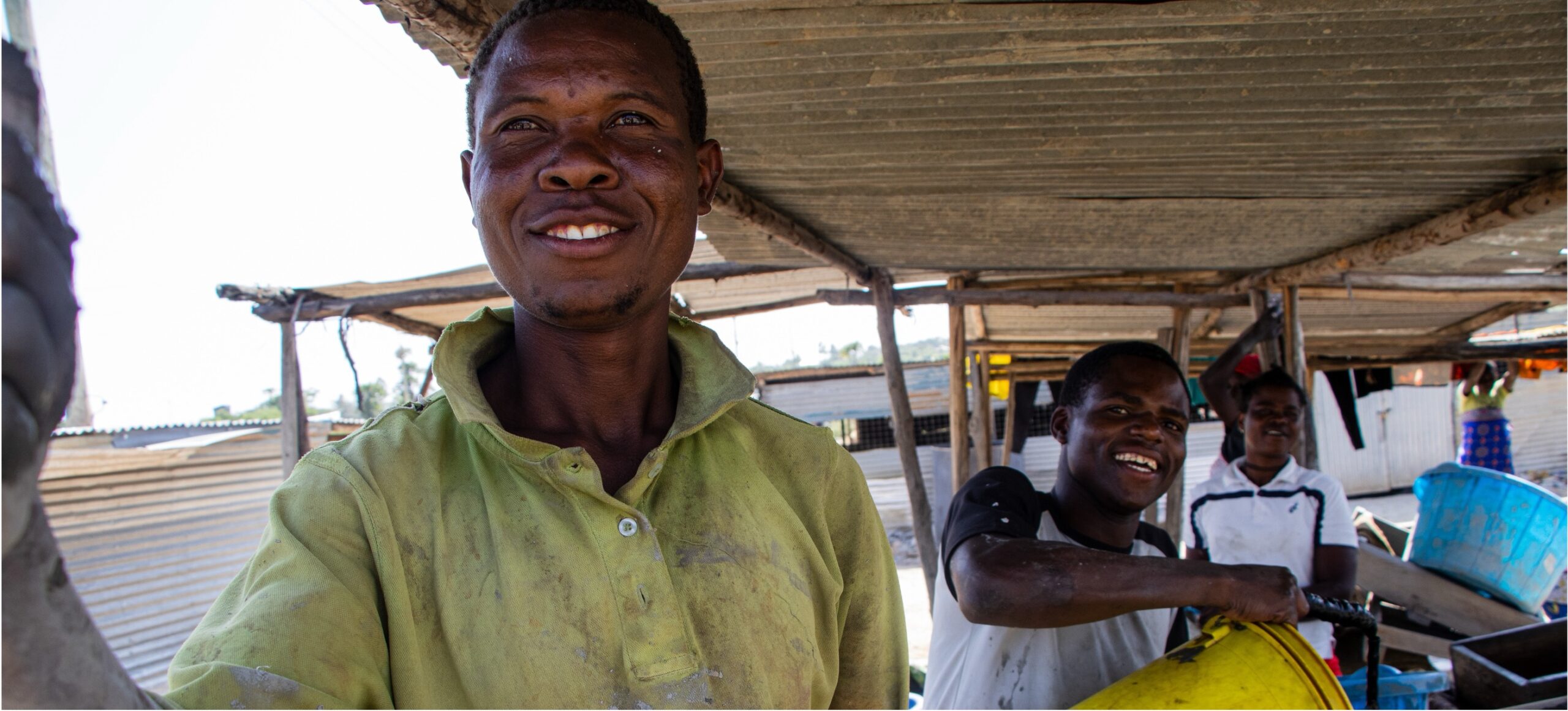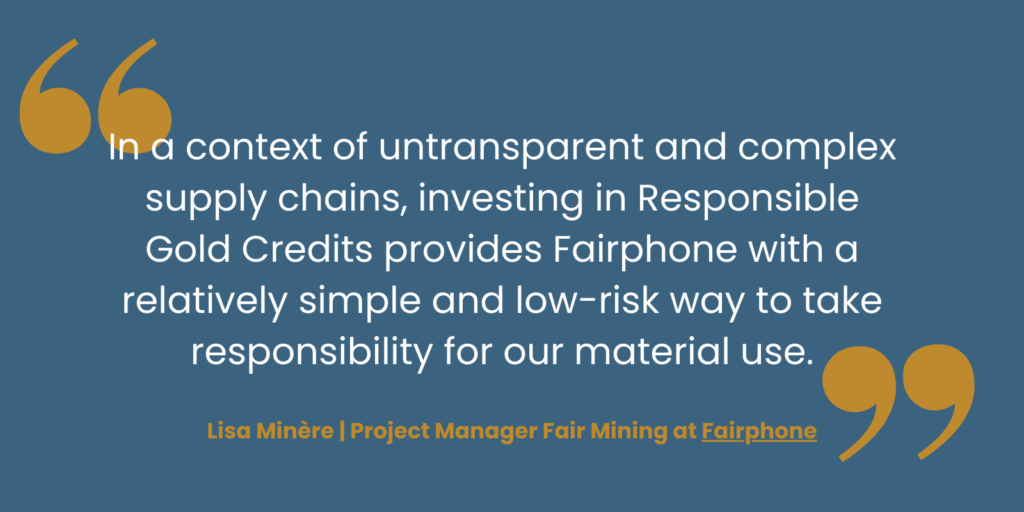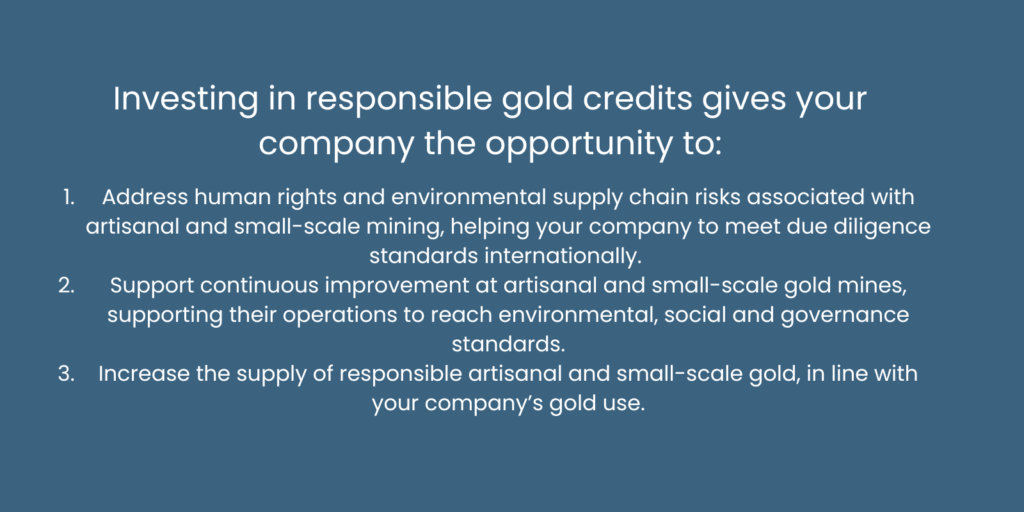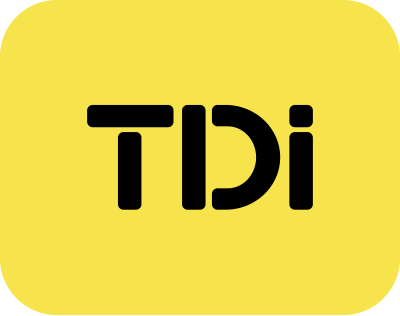
Responsible Gold Credits Programme
Take part in our Responsible Gold Credits Programme to create long-lasting positive change in artisanal and small-scale gold mining communities.
Whether your company uses gold to produce jewellery, or for components in automobiles, mobile phones or other electronic products, our Responsible Gold Credits Programme is an opportunity to forge the way forward to a safer, more responsible artisanal and small-scale gold mining industry.
Every credit your company purchases represents a quantity of more responsibly mined artisanal and small-scale gold. Your money goes on to fund positive change in participating mines, providing a meaningful way to connect with your audience by sharing human stories that matter to them.
The credits system, launching in January 2025, offers companies a low-risk way to contribute to a better gold mining industry.
The deadline to join the pilot phase is fast approaching: secure your credits by Friday 20 December to be part of our first cohort of companies investing in Tanzania’s artisanal and small-scale gold mines.
Email [email protected] or [email protected] now to make an appointment to discuss the credits system in more detail.

Invest in a better future for artisanal and small-scale mining communities
Purchasing credits offers your company a complementary solution to the longer-term commitment of tracing your supply chain; it allows you to start immediately investing in the improvement of the artisanal and small-scale mining industry without physically using its gold in your supply chain.
There are no additional resources involved beyond the credit price. This means more impact for your money, with funds spent directly on participating artisanal and small-scale gold mines.


A credit system designed for impact
Credits cost USD 5 per gram. They represent the same quantity of artisanal and small-scale gold that has been produced to a minimum ESG standard, which addresses the risks identified in the OECD Due Diligence Guidance Annex II and aligns with the CRAFT Code Modules 1-3.
With our support, mine operators decide where they most need to invest their credit funds from a set of four impact areas:
1. Good governance +
2. Safe and dignified working conditions +
3. Environmental protection +
4. Inclusive economic development +
The funds also give mines an incentive to increase how much responsibly produced gold they trade, paving the way to fairer trading practices and formal trade.
The majority of the credit funds will be spent directly on implementing mine improvement plans. A proportion will be allocated to the Impact Facility to cover the costs for the design and assessment of improvement projects.
If you’d like to discuss how the credit system can support your company to improve the artisanal and small-scale mining industry, email [email protected] or [email protected] now.
Managed by experienced partners in artisanal and small-scale mining
The Impact Facility manages the responsible gold credits fund. We verify that participating mines meet minimum ESG standards, defined in our ESG Impact Escalator framework, while working with them to select, implement and analyse the impact of improvement projects.
The Impact Facility oversees the running of the programme alongside partner Solidaridad and in association with Fairphone. The set up of the Responsible Gold Credits Programme was funded by the Netherlands Enterprise Agency (RVO).
Focus on mines with the most potential for impact
The first group of mines to participate in the programme are based in Tanzania’s Geita region and already have a well-established working relationship with both The Impact Facility and Solidaridad. Only legitimately operating mines are part of the responsible gold credit system.
All participating mines have demonstrated an active willingness to improve their practices while meeting minimum environmental, social and governance performance criteria. As these mines need significant support to work towards best practice standards and produce small quantities of gold, they are usually beyond the reach of existing direct sourcing and certification schemes.
Tanzania’s 1-1.5 million-strong artisanal and small-scale mining community1 produces about a third of its gold2. A further 4–5 million people’s livelihoods are estimated to be indirectly dependent on artisanal and small-scale gold mining.3
Thanks to a supportive government recently investing in extensive formalisation, trade data has become easily accessible and verifiable.

By purchasing credits, you’re helping to tackle the human rights and environmental challenges which arise from the significant role that artisanal and small-scale gold mining plays in meeting global gold demand.
Your investment will be targeted to address the individual needs of participating mines. The more credits you buy, the bigger the impact we can have.
Ready to find out more?
Email us now at t[email protected] or [email protected]
to discuss the credits system in more detail.
References:
(1) World Bank, 2015, Economic Contributions of Artisanal and Small-Scale Mining in Tanzania: Gold and Gemstones.
(2) Mining Commission annual reports
(3) International Institute for Environment and Development (IIED), 2017, “Tanzania’s Formalization of Artisanal and Small-scale Mining.”

